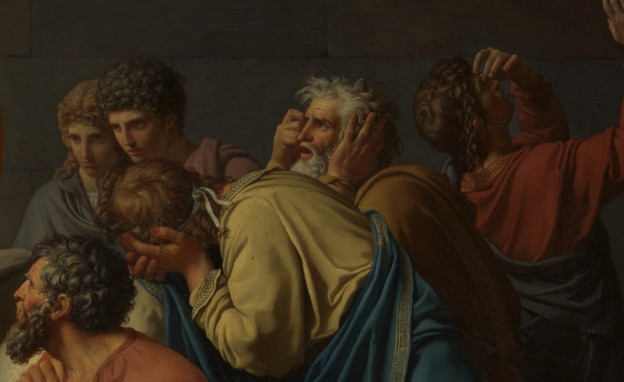It is far easier to forgive or have compassion on someone for a minor offence than a major, repeated offence. For instance, the hungry child who steals a candy bar from the dairy is more likely to receive compassion, especially if they are caught and remorseful for their actions, than a hardened teenage criminal responsible for multiple ram raids and thefts over a period of time.
If this is true of theft, how much more so of stealing the worship due only to God? In Judges 10, we are exposed to the further decline of Israel’s attitude to God, and their increased apostasy. In the face of stricter punishment, Israel once again made gestures towards behaving themselves. Yet God’s compassion to Israel was not based on their acts, but on God’s love.
The Book of Judges outlines a common pattern of apostasy, discipline, repentance, and deliverance. But this cycle is more like water going down the drain, as the cycle continues but in a descent towards the plughole.
By about halfway through Judges, this descent down the vortex of idolatry is clear to see. After the accounts of two “minor” Judges who fix the mess left after Abimelech, there is again a description of apostasy, but of a far greater extent.
In previous passages (3:12, 4:1, 6:1) Israel’s apostasy is mentioned, but in verse six the apostasy is extensively spelt out. Israel did evil by “serv[ing] the Baals and the Ashtaroth, the gods of Syria, the gods of Sidon, the gods of Moab, the gods of the Ammonites, and the gods of the Philistines.” This is apostasy like a self-destructive bender. It spells disaster.
Not surprisingly, this extreme and heaped up apostasy incurred severe retribution from God. Before, one foreign people oppressed. This time, God inflicted two peoples on Israel – Ammon and the Philistines (v.7).
The oppression was terrible, such that they “crushed and oppressed” Israel for eighteen years (v.8), in the same way that God crushed Pharaoh and Egypt in the Exodus (15:6). The Ammonites rampaged through Gilead, and even crossed the Jordan to attack and oppress the north (vv.8-9). “Israel was severely distressed” (v.9).
Right on cue, Israel “cried out to the LORD” acknowledging they had gone after the Baals (v.10). But God’s response indicated a lack of belief in their contrition, because he had heard it all before.
“Did I not save you from the Egyptians and from the Amorites, from the Ammonites and from the Philistines? The Sidonians also, and the Amalekites and the Maonites oppressed you, and you cried out to me, and I saved you out of their hand. Yet you have forsaken me and served other gods; therefore I will save you no more. Go and cry out to the gods whom you have chosen; let them save you in the time of your distress” (vv.11-14).
Ouch. God is not some rich daddy who springs you from jail each time you get into trouble, or a cosmic cleaner to sort out your mess. If your gods are so great, perhaps you should ask them to save you!
Israel, in its lowly state, caught with useless idols that will not dig them out of their fix, renewed their cries to God and turfed out their foreign gods to serve God (vv.15-16). Once again.
God is no fool, and did not come down in the last shower. He had seen this play out before, and that once trouble was over, the Baals would be back. But despite this, we see God’s compassion for his people.
God “became impatient over the misery of Israel” (v.16). As Isaiah described hundreds of years later, “in all their affliction he was afflicted” (63:9) and God in his love and pity redeemed his people.
It was not Israel’s actions in putting away the idols for the umpteenth time which moved God to act, but God’s compassion at Israel’s misery.
That same compassion is the compassion which God expresses to us through the Gospel. If God was waiting for us to repent, he would be waiting a long time as we heaped sin upon sin! But God saved us through Jesus, afflicting Jesus to save us from the greater affliction of our sins; death and eternal punishment.
God does not act positively towards us because we say the right phrases or give up our besetting sins once again, but because of his compassion.
It is that compassion which should motivate us to serve God in good times and bad. God is not just there to fix up our messes like some cosmic cleaner, but to receive our worship and the glory due to his name. We should not take God for granted, like Simon the heretic or Ananias and Sapphira (cf. Acts 5 and 8).
God is not safe. God is powerful and dangerous when crossed, like Israel did in their apostasy and as we do when we sin. But God is also compassionate, afflicted in our afflictions, and redeemed us out of impatience with our misery.


